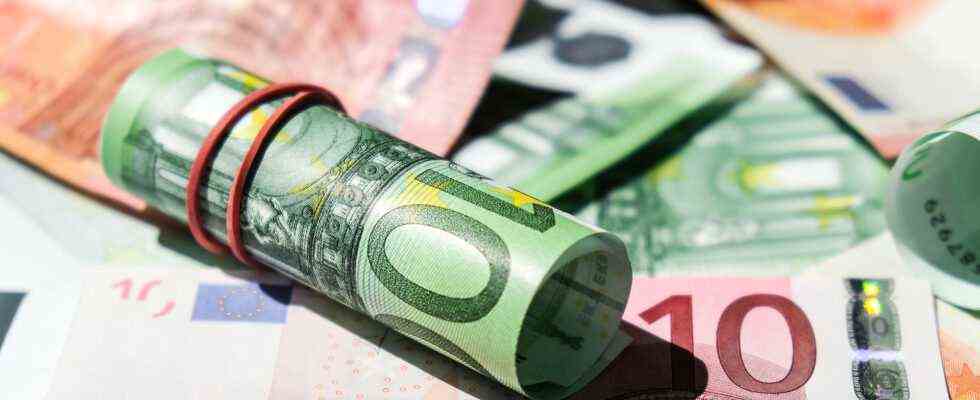Status: 12.10.2021 12:35 p.m.
The financing of investments in climate protection and digitization is considered to be the biggest sticking point in the talks between the SPD, the Greens and the FDP. What suggestions do economic experts make?
For FDP leader Christian Lindner, higher taxes and a softening of the debt brake are red lines that must not be exceeded. Nevertheless, the liberals also plead for a fundamental modernization of the economy and society in Germany. But it costs billions. Marcel Fratzscher, head of the German Institute for Economic Research (DIW), figured in ARD morning magazine the costs for climate protection and digitization in the next ten years to 500 billion euros.
That is a lot of money that the federal government cannot have without taking on new debt. Especially since the corona pandemic has already torn deep holes in the coffers. This year, Finance Minister Olaf Scholz will have to take on 240 billion euros in new debt, and next year it will be another 100 billion euros. Then the new debt must be reduced again with the help of an already existing reserve of almost 50 billion euros. So where should the many billions come from that the green and digital restructuring of the German economy and administration will cost?
“Completely consistent with the debt brake”
Fratzscher recommends “a strong sip from the bottle”, as he does in the ARD morning magazine said – so to use the money still saved and take on additional debt. That is the only way in which the modernization program can be carried out. “Doing that once is completely consistent with the debt brake,” said the economist, who is known for his closeness to the SPD. Because the debt brake is still suspended due to Corona, from 2030 it can then be adhered to again. Fratzscher believes that the FDP can “negotiate” such short-term borrowing. This is the only way to enforce their wish to lower 80 billion taxes in the next few years.
Marcel Fratzscher, German Institute for Economic Research, on the financing of the legislative period
Morning magazine, October 12, 2021
Clemens Fuest, head of the Munich Ifo Institute, also believes that new debts are inevitable. However, he advocates a loan-financed reserve, a kind of “business plan” that the new coalition is presenting to the citizens. This should contain clear priorities, both in terms of expenditure and possible savings.
In an article for the “Frankfurter Allgemeine Sonntagszeitung”, Fuest wrote that it must be specifically determined which public investments and which subsidies for private investments – such as accelerated depreciation for the green and digital transformation of production facilities – will be financed by the reserve in the coming years. It must also be ensured that these are not investments that were already planned to be financed through the normal budget. Third, numerous tax breaks would need to be scrutinized in order to help fund the program.
A new secondary household
“This would ensure that the new government is careful with public funds and that the loan-financed reserve for government spending does not lead to a break in spending,” said Fuest. In this way, the “transformation task” is financed without taxes having to be increased and government spending getting out of hand. This should be checked by the Federal Audit Office.
Fuest also advocates lowering the tax rate on corporate profits from 30 to 25 percent. “The tax rate cut should be introduced over time in order to protect tax revenue,” said Fuest. In his view, it would also make sense to completely abolish the solidarity surcharge, but instead to increase the tax rate for top earners.
However, the economist admits that the “reserve” proposed by him is a kind of secondary budget. “After all, it would be a one-time operation,” he concluded.
Subdued reaction from the Greens
The Greens responded cautiously to the plan. Anja Hajduk, currently still the party’s budgetary spokeswoman, told Spiegel: “Mr. Fuest’s attempt to find a compromise shows the urgency of the financing issue, and that is good for the further development of the debate.” Hajduk doubts that such a provision would be sufficient to finance the investments in full.
The situation is so tricky because the federal government has only been allowed to take out 0.35 percent of German economic output in new loans since the introduction of the debt brake in 2016. The federal states have not been allowed any new loans since 2020. However, there are exceptions, for example in the case of recessions, natural disasters or pandemics.

